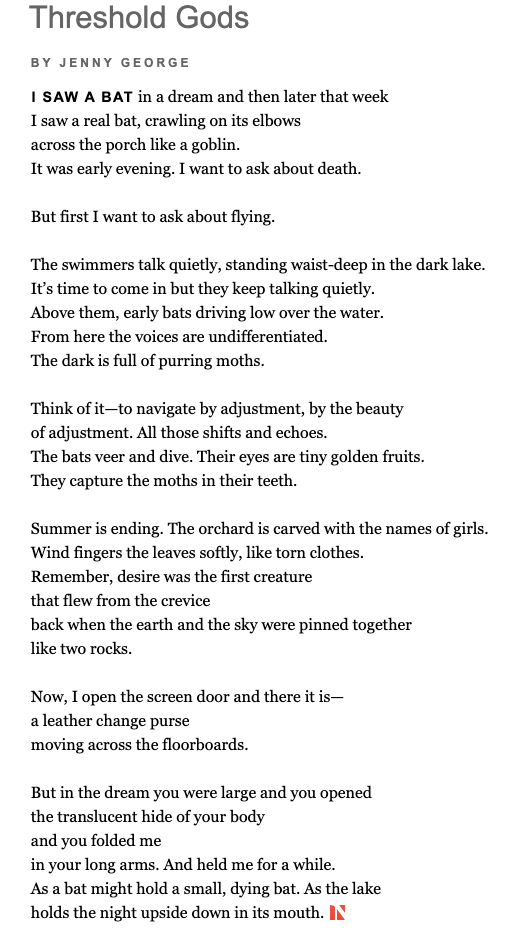Jenny George just knocks me out every time. I’m a latecomer to her brilliance and it is an electric shock every time I come across a poem of hers that I’ve never read before. (‘Tin Bucket’ is a perennial gem). That’s what happened when I encountered this one. On an image level, ‘Threshold Gods’ is striking and luminous, moving through dark night with a tenderness and specificity of sensory detail. And her navigation of the poem’s negative space feels, yes, like echolocation. The lineation here is notable: all these stanzas winding through observation and dream, set against the precise, desirous scalpel of the standalone line: ‘But first I want to ask about flying’. Something I appreciate about George is her willingness to submerge into metaphor in her work, and to leave the pencil-marks visible. I mean this on a technical level: the conjunctions and prepositions - like and as - that set up her imagery. I also mean it less tangibly; in a world of contemporary poetics that eschews lyricism, it is refreshing to read a poet who earnestly embraces figurative language - and exemplifies how this is not mutually exclusive with lucidity and rigour.
This poem - like the entire collection from which it hails, The Dream of Reason - hinges itself on an exploration of the relationships between humans and other animals. One whole section of the book centres around farm animals. These relationships are relationships of distance, intimacy, observation, fear, ownership, consumption. Often they are several of these, simultaneously: overlapping and contradictory, dialectical and violent, loving and extractive. Blind as a bat, we say colloquially - yet bats innately navigate this many-dimensioned world with a sophistication that we humans are unable to achieve. Except we try, don’t we, through language? We try, constantly, to hold the night upside down in our mouths.
Keep reading with a 7-day free trial
Subscribe to Field Guide to keep reading this post and get 7 days of free access to the full post archives.





